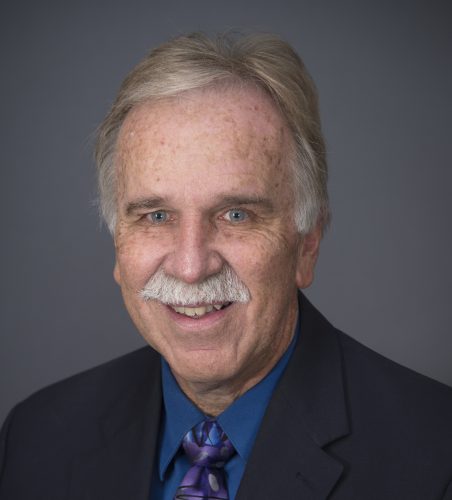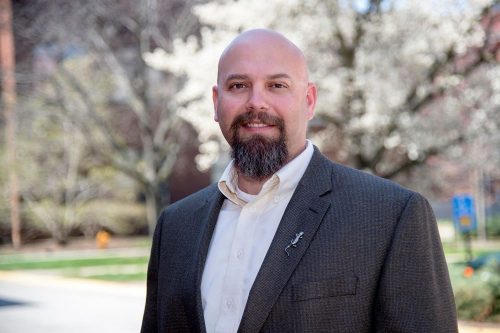IANRE director candidate forums scheduled
October 9, 2020
Four candidates for director of the Institute of Agriculture, Natural Resources and
Extension have been invited for a virtual campus visit in October. The candidates
will meet with IANRE faculty and staff, community members, and will give public presentations
via livestream.
Audience members can submit questions before and during the public forums via submission form.
For more information on the candidates, please visit the Provost’s Office website.
The director of the Institute of Agriculture, Natural Resources and Extension is the
principal administrative officer of the Cooperative Extension Service and the Agricultural
and Forestry Experiment Station. The director reports directly to the UAF provost
and provides visionary leadership to CES and AFES by working with staff, faculty and
the public to create an engaged organization that is responsive to the needs and goals
of Alaskans. The director promotes the visibility of the university and its engagement
and research activities to the people of the state and consults with state and community
leaders to ensure that IANRE is responsive to the needs of Alaskans. The director
works within UAF and the UA system to support academic units in natural resource research
and extension and outreach programming.

Clive Kaiser
Monday, Oct. 19
4-5 p.m.
Clive Kaiser was raised in South Africa and did his B.S in horticultural science and botany at the University of KwaZulu-Natal. He followed that up with a M.S. in horticultural science and then worked as a postharvest physiologist for the Agricultural Research Council before returning to complete his Ph.D., for which he developed a novel technique for keeping litchi fruit red permanently.
He spent two years in Australia doing a postdoc on avocados after which he returned to South Africa and worked as technical director for a fruit export company. Subsequently, he worked for the KwaZulu-Natal Department of Agriculture and Environmental Affairs as a senior research scientist, and from there took up a position as senior lecturer at the University of Pretoria before emigrating to New Zealand. In 2006, he applied for the Umatilla County extension agent position and was appointed as an assistant professor in the Department of Horticulture at Oregon State University. He was tenured and promoted through the ranks of associate professor and then full professor in 2017. In September 2019, he became the interim director of the Hermiston Agricultural Research and Extension Center and in October 2020. He was also appointed as the interim director of the Columbia Basin Agricultural Research Center.

Roger Tormoehlen
Thursday, Oct. 22
4-5 p.m.
Tormoehlen grew up on a 500-acre dairy farm in southern Indiana. As a youth he was heavily engaged in both the 4-H and FFA organizations, both of which he accredits with his personal and professional development. He graduated from Purdue University with a B.S. in agricultural education, a M.S. in education and a Ph.D. in agricultural engineering. Tormoehlen has been associated with the Cooperative Extension System for the past 30 years where, in partnership with county staff, academic colleagues and industrial partners, he led the development and implementation of innovative youth engineering and safety-related programming.
Tormoehlen has served as the PI or Co-PI on over $6 million in grant and industry funded research regarding the educational effectiveness of electronic and other learning strategies in formal and non-formal educational settings. He led the development and evaluation of the first national electronically delivered 4-H curriculum, Computer Mysteries. Gearing Up, a CD-ROM and web-based agricultural safety curriculum for high school-aged youth, has been distributed to over 20,000 youth, county extension educators, and high school agricultural science teachers. Tormoehlen has presented the findings of his research at two international conferences on computers in agriculture, an international conference on computer-based expert systems, and numerous national professional meetings. His research efforts have been published in national and international journals.

Rod Williams
Monday, Oct. 26
4-5 p.m.
Rod Williams is currently the project lead for Advancement of Research Impact in Society initiative within the Office of Engagement at Purdue University. He leads a team of research and engagement faculty to enhance institutional capacity to support research impacts in communities. He formerly served as an engagement faculty fellow with the Office of Engagement and focused on developing resources for promotion and tenure on the basis of the scholarship of engagement. This included developing a best management guide for creating high-impact dossiers for junior faculty and steps to evaluate high impact documents for senior faculty.
He also co-led the Scholarship of Engagement Fellows mentoring Program. The purpose of the program is to foster the development of the scholarship of engagement for faculty throughout the Purdue University system in support of the promotion and/or tenure process. Williams is also an extension wildlife specialist within the Department of Forestry and Natural Resources. Williams’ scholarship of engagement serves the land grant mission by working with university students, PK-12 students, teachers, and extension agents. Williams’ engaged scholarship includes developing innovative undergraduate and graduate courses in Extension, professional development training for PK-12 educators, and building signature programs with extension agents across program areas: 4-H, health and human science, and agricultural and natural resources.
Community partner engagement is an integral part of Williams’ engagement portfolio and his signature extension programs highlight this approach. For example, his Nature of Teaching program partners with elementary schools where teachers serve as focus groups, provide guidance on developing curriculum, assist with pilot testing curriculum, serve as peer reviewers, collect assessment data, and even co-author publications. Williams assesses the impact of his programs by documenting increases in knowledge, implementation of scholarly deliverables, and adoption of extension programs.

Casey Matney
Thursday, Oct. 29
4-5 p.m.
Matney has worked as a faculty member within the Cooperative Extension Service for the University of Alaska Fairbanks since 2015. While at UAF, he has led several projects and programs in Alaska such as the USDA Western Region Sustainable Research and Education Program, Integrated Pest Management Program, Produce Safety Program, and Alaska Sustainable Agriculture Conference.
Prior to his appointment at UAF, Matney served as the Rangeland Extension Specialist for Colorado State University. In addition to research and service duties, he instructed rangeland management courses for both CSU and Northeastern Junior College. He also has over 10 years of experience instructing distance courses for the Department of Forestry and Rangeland Stewardship at CSU and Department of Rangeland Ecology and Management at Oregon State University. He received his Ph.D. in rangeland ecology from Oregon State University, as well as earning a master’s degree in rangeland resources and a bachelor’s degree in fisheries and wildlife management. Additionally, he received an associate degree in fisheries technology from Mount Hood Community College. Matney provides leadership on a number of committees, associations and boards including the Pacific Northwest Society for Range Management Board of Directors, Alaska president for the National Association of County Agricultural Agents, Western Pesticide Risk Management Group, co-chair of the UAF Research Advisory Council Committee, and member of UAF Administrative and Distance Education Committees.


